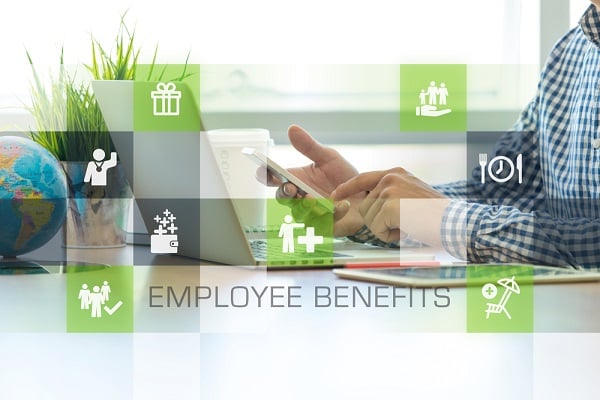 “As businesses shift into the future of work, it's as important as ever to understand employees' workplace expectations, challenges and requirements,” says a Paychex representative. (Photo: Shutterstock)
“As businesses shift into the future of work, it's as important as ever to understand employees' workplace expectations, challenges and requirements,” says a Paychex representative. (Photo: Shutterstock)
Employers have one view of how well the benefits they offer their employees fill those employees' needs—but employees themselves often have different, or at least much more specific, opinions of how satisfied they are with what they're offered.
That's according to a survey from Paychex of employees and their assessment of how they feel about their benefits. Employees have very specific needs, and their view of how to address those needs can differ substantially from how employers and HR departments view the situation.
“As businesses shift into the future of work, it's as important as ever to understand employees' workplace expectations, challenges and requirements,” said Maureen Lally, Paychex vice president of marketing. “While employers can implement changes from the top, employees ultimately define what the American workplace looks like. Their habits, preferences and behaviors are what shape company culture.”
Related: What happens when you let employees design their benefits package?
Among the findings is that there needs to be a change to how open enrollment is tackled. More than a third (37 percent) of employee respondents say that an assessment tool to help them identify the best plan options is something that they need. Older employees feel even more strongly about it, with 60 percent of the 50-to-65 crowd citing that as the top change they'd make to open enrollment.
Another 18 percent want self-service technology that would let them go through the enrollment process more efficiently without calling in outside help, and both communication (23 percent) and additional educational resources (22 percent) were also big factors. In fact, 71 percent would prefer that a lot of HR functions, such as updating an address, managing retirement or reporting their hours, be automated in a way comparable to the ease and intuitiveness of consumer apps.
“Enhancing the employee experience through technology that empowers workers to be self-reliant will reduce the overwhelming HR workload many employers face and help enable such businesses to attract and retain top talent, boost employee engagement, and ultimately grow their business,” Tom Hammond, Paychex vice president of corporate strategy and product management, says in the report.
Keeping up with benefit changes is a challenge for employees, with 29 percent citing it as a concern; 28 percent also regard trying to predict personal and family needs as one of the most complicated parts of open enrollment. Women more than men cited the latter as their number-one concern, at 33 percent compared with 24 percent.
More men than women feel that their employers are supporting their career growth, at 65 percent compared with 58 percent. But that support means a lot to employees, with 97 percent of women and 96 percent of men saying they'd stick with an employer who supported their career development.
But a sizable portion of both groups don't feel as if they're getting enough training to be the best they can be in their current roles, or enough support to advance, with 34 percent feeling they don't get enough training and 39 percent feeling a lack of support.
Read more:
© Touchpoint Markets, All Rights Reserved. Request academic re-use from www.copyright.com. All other uses, submit a request to [email protected]. For more inforrmation visit Asset & Logo Licensing.






